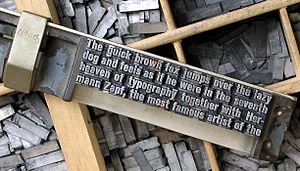Sentence facts for kids
A sentence is a group of words that work together to share a complete idea. It's the basic building block of language. Sentences follow specific grammar rules to make sense.
Every complete sentence needs at least a subject and a main verb. The subject is the noun that performs the action. The main verb is the action the subject is doing. For example, in "Walker walks," 'Walker' is the subject, and 'walks' is the verb. In English, a written sentence always starts with a capital letter. It usually ends with a full stop (also called a period in American English).
Contents
Parts of a Sentence: Phrases and Clauses
A phrase or clause is a group of words that forms part of a sentence.
What is a Phrase?
A phrase is a group of words that doesn't have both a subject and a verb. It can't stand alone as a complete thought.
- The dog is happy.
In this sentence, 'The dog' is the subject, and 'is' is the verb. This is a complete sentence.
- The happy dog
This is a phrase. It tells us about a dog, but it doesn't have a verb to show what the dog is doing. So, it's not a complete sentence.
What is a Clause?
A clause is like a mini-sentence inside a bigger sentence. It has its own subject and verb.
- They milked the cows, and then they made cheese and butter.
This sentence has two clauses. The first is "They milked the cows." The second is "then they made cheese and butter." Both parts have a subject ('They') and a verb ('milked', 'made'). They are joined by the word 'and'.
Different Kinds of Sentences
Sentences can be put together in different ways:
- A simple sentence has only one clause.
* The cat is sleeping.
- A compound sentence has two or more clauses that are equally important. These clauses are joined by words like 'and', 'but', or 'or', or by punctuation.
* The dog is happy, but the cat is sad.
- A complex sentence has one main clause and at least one other clause that adds more information. This extra clause often starts with words like 'which', 'who', or 'because'.
* The dog, which is eating the bone, is happy.
- A complex-compound sentence has many clauses. It combines features of both compound and complex sentences. It has at least two main clauses and at least one clause that adds extra information.
* The dog, which is eating the bone, is happy, but the cat is sad.
Sentences also have different jobs:
- A declarative sentence tells you something. It's the most common type and ends with a full stop ('.).
* The dog is happy.
- An interrogative sentence asks a question. It ends with a question mark (?).
* Is the dog happy?
- An exclamatory sentence shows strong feeling or surprise. It ends with an exclamation mark (!).
* That dog is the happiest dog I have ever seen!
- An imperative sentence gives a command or tells someone to do something.
* Give the dog a bone.
Simple English Sentences
Here are some sentences written in a very basic and clear English style:
- The sky is blue.
- Today is Monday.
- Tomorrow is Tuesday.
- The baby is smiling.
- This is the road to take.
- Read a book about the history of America.
- There are beautiful flowers growing in the garden.
- The cushions are new and I can experience the comfort well.
Related pages
 | Kyle Baker |
 | Joseph Yoakum |
 | Laura Wheeler Waring |
 | Henry Ossawa Tanner |


